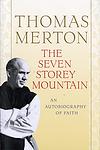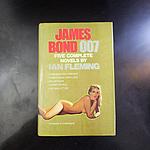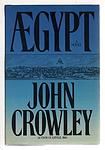The Greatest "Kentucky" Books of All Time
Click to learn how this list is calculated.
This list represents a comprehensive and trusted collection of the greatest books. Developed through a specialized algorithm, it brings together 284 'best of' book lists to form a definitive guide to the world's most acclaimed books. For those interested in how these books are chosen, additional details can be found on the rankings page.
Genres
Countries
Date Range
Reading Statistics
Click the button below to see how many of these books you've read!
Download
If you're interested in downloading this list as a CSV file for use in a spreadsheet application, you can easily do so by clicking the button below. Please note that to ensure a manageable file size and faster download, the CSV will include details for only the first 500 books.
Download-
1. Uncle Tom's Cabin by Harriet Beecher Stowe
This renowned novel provides a harsh critique of American slavery through the story of Uncle Tom, a long-suffering black slave. The narrative follows Tom as he is sold and transported to the harsh South, encountering a variety of characters, both kind and cruel. The novel powerfully explores themes of faith, the immorality of slavery, and the concept of humanity, ultimately contributing to the abolitionist cause and leaving a significant impact on the American perception of slavery.
-
2. The Seven Storey Mountain by Thomas Merton
This book is an autobiography of a man who, after a youth filled with worldly experiences and ambitions, converts to Catholicism and chooses to live his life in a Trappist monastery. His journey from a secular life to a deeply spiritual one is filled with introspection and profound insights about the nature of faith and the quest for a meaningful life. His story is a powerful testament to the pull of spiritual enlightenment and the peace that comes from dedicating one's life to a higher purpose.
-
3. Corregidora by Gayl Jones
The novel centers on Ursa Corregidora, a young African American blues singer in the 20th century, who grapples with the legacy of trauma passed down from her enslaved ancestors. Haunted by the stories of brutality and sexual exploitation told by her great-grandmother and grandmother, both of whom were victims of a Portuguese slaveholder named Corregidora, Ursa navigates her personal relationships and her identity as a black woman. The narrative delves into themes of memory, history, and the enduring impact of slavery on the present, as Ursa seeks to reconcile her heritage with her own experiences of love, sexuality, and artistic expression.
-
4. The Unsettling of America by Wendell Berry
This book is a profound critique of modern industrial agriculture, arguing that it degrades the land and disconnects people from their food sources. The author advocates for a return to more traditional, sustainable farming methods, which he believes will lead to healthier communities and a more balanced relationship with the environment. He also explores the broader cultural implications of this shift, including the potential for greater self-reliance and a deeper sense of connection to the natural world.
-
5. Goldfinger by Ian Fleming
In this espionage thriller, the suave British secret agent is tasked with investigating a wealthy gold magnate suspected of illegal gold smuggling on a grand scale. The agent uncovers a daring plot to raid the gold reserves at Fort Knox, which threatens to destabilize the world's economy. With the help of a resourceful female pilot, the protagonist navigates a world of danger, betrayal, and high-stakes gambling, using his wits and gadgets to thwart the villain's elaborate scheme. The story is a classic blend of action, intrigue, and international adventure, set against the backdrop of the Cold War.
-
6. Aegypt by John Crowley
The novel explores the intertwining lives of several characters, primarily that of a historian who becomes obsessed with the alternative histories and esoteric knowledge of the Renaissance period. As he delves deeper into his research, he begins to question the nature of history, reality, and the possibility of there being more than one true history of the world. The narrative weaves together personal transformation, magical occurrences, and the pursuit of hidden truths, set against the backdrop of both contemporary America and historical Europe, challenging the reader's perception of reality and the boundaries between fact and fiction.
-
7. Weeds by Edith Summers Kelley
The novel explores the life of a strong-willed woman named Judith, who is trapped in a stifling marriage and struggles to maintain her individuality and spirit amidst the hardships of rural Kentucky life in the early 20th century. As she toils on a tobacco farm with her husband and children, Judith grapples with the societal expectations placed upon her and the limited opportunities available to women of her time. The narrative delves into themes of feminism, poverty, and the human connection to the land, painting a vivid portrait of the challenges faced by women seeking autonomy in a patriarchal society.
-
8. The Dollmaker by Harriette Arnow
The novel follows the story of Gertie Nevels, a strong-willed and talented woman from the Kentucky hills, who is uprooted from her rural home when her husband finds work in Detroit during World War II. As a skilled woodcarver and a devoted mother, Gertie struggles to maintain her family's Appalachian values and way of life amidst the harsh realities of urban industrial society. Her dream of buying back her family's homestead is challenged by the demands of her new environment, leading to a poignant exploration of identity, resilience, and the clash between rural and urban cultures during a time of societal change.
-
9. Follow the River by James Alexander Thom
"Follow the River" is a historical novel based on the true story of Mary Ingles, a woman who was captured by Shawnee Indians in 1755 during the French and Indian War. After being taken to Ohio, Mary, who was pregnant at the time of her capture, gives birth and is subsequently separated from her baby. Despite the harrowing circumstances, she manages to escape with another woman. The narrative follows her perilous 1,000-mile journey through the wilderness, back to her home in Virginia, showcasing her resilience, courage, and unwavering determination.
-
10. Recollected Essays by Wendell Berry
"Recollected Essays" is a collection of writings that explore the relationship between humans and the natural world. The author uses his unique perspective as a farmer and environmental activist to delve into topics such as agriculture, land conservation, and the importance of community in creating a sustainable future. The essays challenge readers to reconsider their own relationship with the environment and encourage a return to a more balanced, respectful interaction with the natural world.
-
11. The Memory Keeper's Daughter by Kim Edwards
This novel unfolds the heart-wrenching story of a family irrevocably changed one snowy night in 1964. When a doctor is forced to deliver his own twins, he makes a split-second decision to send his newborn daughter, born with Down syndrome, away with the nurse, instructing her to place the baby in an institution. Instead, the nurse moves to another city and raises the girl as her own. The secret of the daughter's existence creates a silent chasm in the doctor's marriage and profoundly affects their son, as the lie that was meant to protect them all slowly erodes their lives. Spanning a quarter of a century, the novel explores themes of love, loss, and the complex nature of family and identity.
-
12. The Field of Vision by Wright Morris
"The Field of Vision" is a novel that focuses on a group of American tourists who travel to Mexico to witness a bullfight. The narrative unfolds through the eyes of one of the tourists, who reflects on his personal life and relationships. The story is not linear but rather a series of flashbacks and introspections, creating a complex and layered narrative. The author explores themes of perception, memory, and the human condition through the protagonist's introspective journey.
-
13. Betty by Tiffany McDaniel
This novel is a poignant coming-of-age story set in the rural town of Breathed, Ohio, during the mid-20th century. It follows the life of a young girl of mixed white and Cherokee heritage, who grows up in a large, impoverished family plagued by dark secrets and personal tragedies. Through her eyes, we experience the harsh realities of racism, sexism, and the struggles of her family against the backdrop of Appalachian folklore and the deep connection to nature. The narrative is a tapestry of the protagonist's resilience, the power of storytelling, and the unbreakable bond she shares with her father, who instills in her the importance of her heritage and the strength found in one's roots.
-
14. Sweet Taste of Liberty: A True Story of Slavery and Restitution in America by W. Caleb McDaniel
This book tells the true story of a freed African American woman who was kidnapped and sold into slavery, and her fight for justice and restitution after the Civil War. It provides a detailed, personal account of her journey, legal battles, and the historical context of the time, shedding light on the injustices suffered by African Americans, even after they were legally freed. The narrative also explores the broader themes of racial inequality, reparations, and the lasting impacts of slavery on American society.
Reading Statistics
Click the button below to see how many of these books you've read!
Download
If you're interested in downloading this list as a CSV file for use in a spreadsheet application, you can easily do so by clicking the button below. Please note that to ensure a manageable file size and faster download, the CSV will include details for only the first 500 books.
Download












